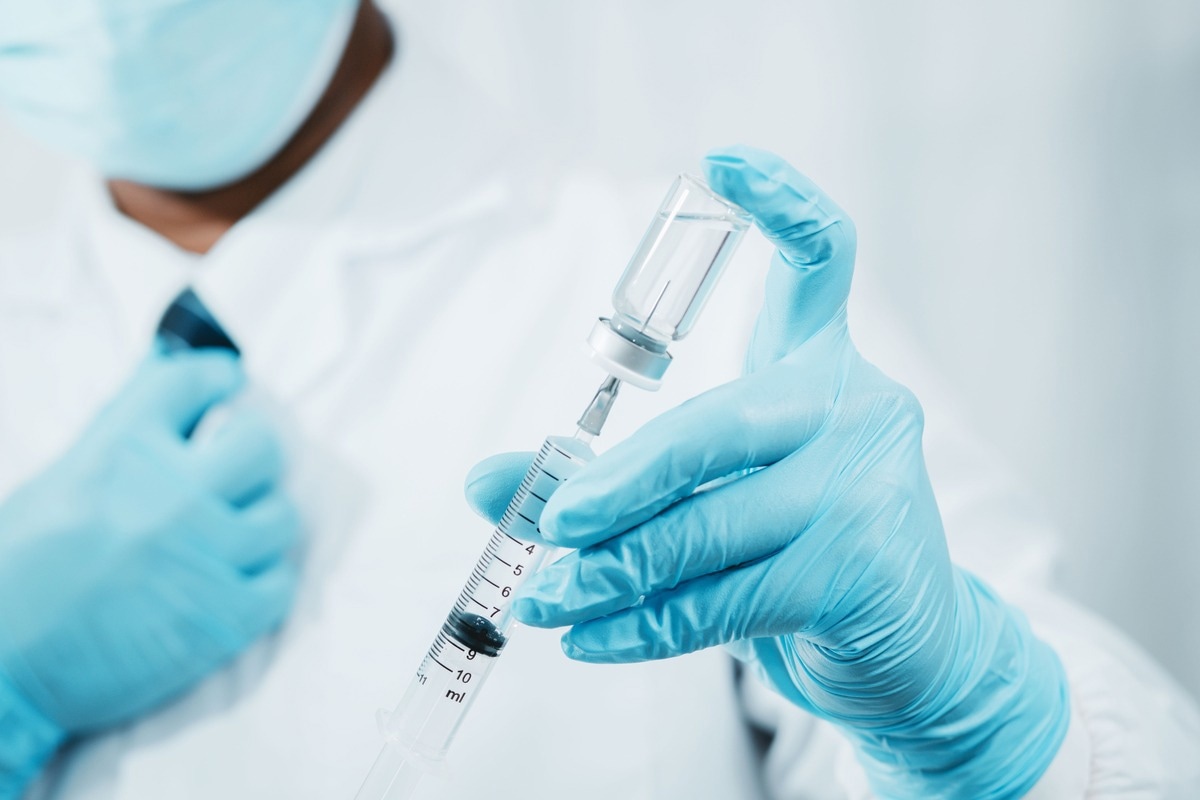In a recent study published in the International Journal of Infectious Diseases, researchers suggested the inclusion of nucleocapsid protein in vaccines against severe acute respiratory syndrome coronavirus 2 (SARS-CoV-2).
 Study: Nucleocapsid as a Next Generation COVID-19 Vaccine Candidate. Image Credit: Treecha/Shutterstock
Study: Nucleocapsid as a Next Generation COVID-19 Vaccine Candidate. Image Credit: Treecha/Shutterstock
SARS-CoV-2 is exemplary for “evolution in action” with continually emerging mutant variants of concern (VOCs). These variants are distinguished by the mutations in the spike protein of the virus, which confer enhanced efficiency in replication, transmissibility, and immune escape. Many SARS-CoV-2 vaccines are based on the spike protein. Given its high mutational frequency, developing next-generation vaccines by replacing spike or co-expressing nucleocapsid and spike proteins could be a viable solution.
The nucleocapsid is located internally and is relatively stable and conserved compared to spike. The conservation of nucleocapsid makes it an ideal target for cytotoxic T lymphocytes that correlate with effective clearance of viral particles and less severe coronavirus disease 2019 (COVID-19). Researchers have also reported robust T cell responses against nucleocapsid.
The heterogeneity and evolvability of SARS-CoV-2 in response to the selection pressure by therapeutic antibodies and vaccines directed against spike could promote the emergence of fully-resistant variants. Messenger ribonucleic acid (mRNA) vaccine boosters have been effective against symptomatic infection with SARS-CoV-2 Delta, albeit less effective against the Omicron variant. Nevertheless, mRNA boosters could still confer substantial protection against severe disease and death.
Homologous and heterologous prime boost approach
Administering multiple doses of the same vaccine, for instance, a spike-based vaccine, could be termed a ‘homologous prime boost’ approach, wherein the initial dose primes the immune system and additional doses amplify it. Although with this strategy, humoral immune responses were shown to be augmented, the antibody response usually declines over time, much before the T cell responses wane. Contrastingly, sequential administration of spike-based and nucleocapsid-based vaccines could be defined as the ‘heterologous prime boost’ strategy.
This approach could boost cellular immune responses, as documented previously for other pathogens. However, several candidate vaccines would need evaluation, comparison, and optimization before implementing this strategy. Alternatively, the BBIBP-CorV and CoronaVac vaccines, which are whole-virus inactivated vaccines, could be helpful because they incorporate other viral proteins such as envelope, nucleocapsid, and matrix.
According to one study in a population primed with inactivated vaccines, a booster dose significantly amplified immunogenicity. Notably, heterologous prime boost was more effective than homologous boost. A limitation of inactivated vaccines is that they induce low immunity unless appropriately adjuvanted or given in a large dosage.
Immunocompromised patients serve as SARS-CoV-2 reservoirs
Notwithstanding the use of inactivated/mRNA vaccines, studies have identified multi-mutational immune-evasive variants in immunocompromised patients with protracted SARS-CoV-2 infection. These individuals could serve as breeding grounds for viral evolution and might lead to spillover to the general public. One report revealed that SARS-CoV-2 infection persisted for nearly one year in an immunocompromised patient. During that time, open reading frame 7b (ORF7b) and ORF8 were lost entirely, and the virus acquired a unique in-frame deletion within the spike sequence.
Conclusion
Implementation of vaccination policy wherein the use of one spike variant vaccine until its complete suppression could lead to the emergence of another variant. Therefore, vaccination should be designed for broader protection by incorporating the conserved nucleocapsid, which is essential for viral RNA synthesis and thereby effectively eliciting T cell responses.